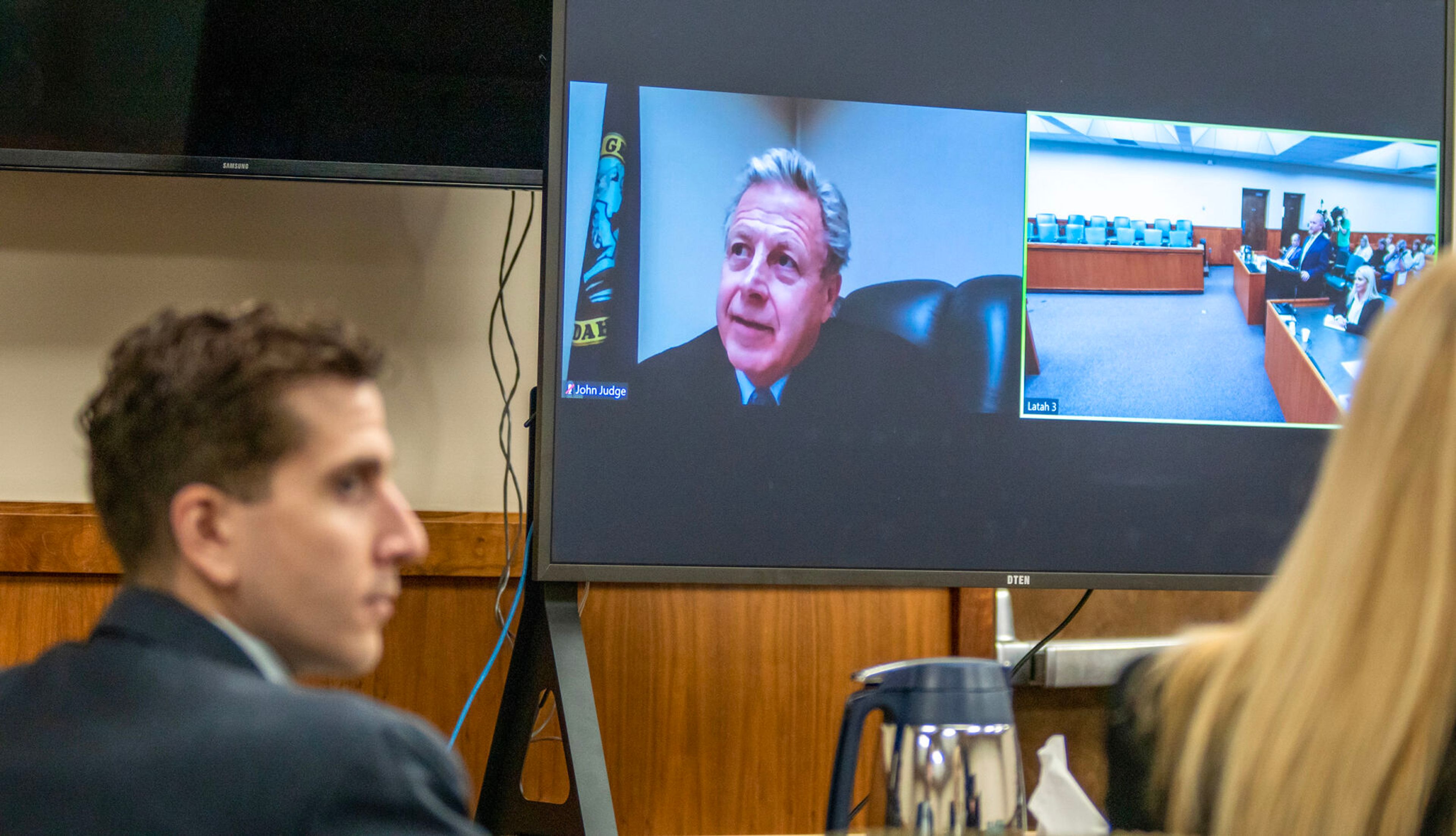Idaho bill seeks to alter how vacancies for judgesare filled
Skaug’s legislation would severely limit role of Judicial Council and draws Jim Jones’ disapproval
BOISE — A bill introduced Wednesday that would raise judge salaries would also change the way vacancies are filled; the bill has prompted constitutional questions.
Rep. Bruce Skaug, R-Nampa, introduced in the House Ways and Means Committee HB 713, which would, in some cases, keep Supreme Court, Court of Appeals, and District Court judge vacancies open until the next election — this change would severely limit the role of the Judicial Council.
Skaug told the committee the bill was meant to “encourage more elections.”
Currently, if these types of judges retire before their term is up, the Judicial Council selects candidates from groups of applicants to recommend to the governor, who appoints a replacement to serve until the next election. Magistrate judge vacancies are filled by appointment from the district magistrate commission until the next election.
Jim Jones, sormer attorney general and state Supreme Court justice, emailed Skaug on Wednesday afternoon outlining his constitutional concerns. He cites the Idaho Constitution, which states that if a justice of the Supreme Court vacates the position, “it shall be the duty of the governor to fill the same by appointment, as provided by law, and the appointee shall hold his office until his successor shall be selected and qualified in such manner as may be provided by law.”
“There is no way that the Legislature can divest the Governor of his constitutional power to fill any vacancy,” Jones wrote.
He also cited a 1944 Idaho Supreme Court opinion, Winter v Davis, that references the section of the Constitution that it “is an absolute grant of appointive power to the Governor by the Constitution itself and does not depend upon legislative action or legislative sanction.”
Under the bill, the changes to the vacancy process would only apply to judges who select a certain retirement plan, called Plan B. Eligible judges who retire under Plan B earn more retirement pay but are required to work as senior judges a certain number of days without additional compensation for those days. Under a different retirement plan, called Plan A, judges who retire and serve as senior judges get paid a percentage of their salary on days they work.
The bill would also allow the council to make recommendations to the governor for appointment if a vacancy isn’t filled in the next election. The council would still be responsible for helping fill vacancies due to death or illness.
State Supreme Court justices and Court of Appeals judges are elected in nonpartisan elections for six-year terms, and District Court judge terms are four years.
There have been a number of proposed and enacted changes to the judicial council and judge selection process over the past couple of years.
A bill previously introduced this session, SB 1347, would have removed the Plan B option for future judges and would have required that the vacancies created from judges opting for Plan B stay open until the next election.
Last session, the Legislature passed a bill that increased the number of Judicial Council members and removed the ability of the Idaho State Bar to appoint three lawyers to the council, among other changes.
In 2022, Gov. Brad Little vetoed a bill that would have tied judicial salary increases to significant changes to the council and to judge selection. That year, lawmakers adjourned having approved pay increases for every other state employee other than judges.
The last two years in his State of the Judiciary speech, Supreme Court Chief Justice Richard Bevan has said the pay needs to be increased for judges to address a shortage of qualified applicants for open positions. Judicial salaries are set in code, so changes must be made in a bill. Other state employee salaries are set in the budget-setting process.
Skaug’s proposal would set Idaho Supreme Court justice salaries at $169,508, which is a 2.6% increase. Court of Appeals judges would see a 2.7% increase and Magistrate judges a 3% increase.
The increases would cost $958,741 from the state general fund.
The Idaho Senate already unanimously passed a bill that would increase judge salaries to the same amounts as in HB 713. SB 1378 passed March 11 and went to the House Judiciary and Rules Committee, which Skaug is the chairperson of. As chairperson, Skaug may choose whether SB 1378 comes up for a hearing.
Guido covers Idaho politics for the Lewiston Tribune, Moscow-Pullman Daily News and Idaho Press of Nampa. She may be contacted at lguido@idahopress.com and can be found on X, formerly Twitter, @EyeOnBoiseGuido.








